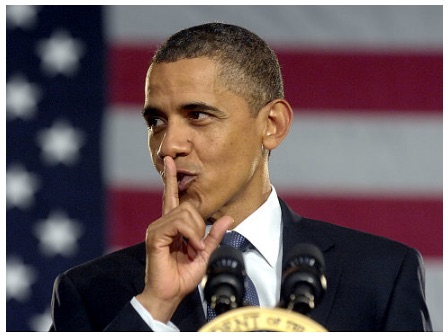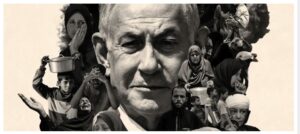The announcement of The United States drawing down troop deployment from Northern Syria – with the United Arab Emirates, and Saudi Arabia sending in replacements to bolster the region, highlights a much larger backstory.
President Obama’s February ’09 Cairo speech began a sequence of events that led to what was called the “Arab Spring“; factually an extremist uprising. Bolstered by the resulting chaos the Muslim Brotherhood rose to power in Egypt behind Mohammed Morsi.
However, a majority of the Egyptian people rejected President Morsi’s sharia governance, and asked a well respected General Fattah al-Sisi to step in. Accepting the request of a desperate people Sisi removed Morsi, disbanded the Muslim Brotherhood and went on to win a landslide election in 2014. The leadership of the Brotherhood fled to Qatar.
President Obama and his policy team was not happy with this outcome. Obama supported Morsi, not al-Sisi. Another person who was not happy, was Turkish President Recep Erdogan, who also supported Morsi and the Muslim Brotherhood.
Undeterred, and understanding the need for urgency, Egyptian President al-Sisi then began a long process of confronting extremism. Sisi destroyed the Hamas terror tunnels on the border between Egypt and Israel; and, despite the anxiety expressed by U.S. Secretary of State John Kerry, Sisi brokered an interim peace agreement between the Palestinian Authority and Israelis.
Destroying the Hamas tunnels removed the physical terror influence of Iran. President al-Sisi then returned his focus back to Qatar and their support for the exiled leadership of the Brotherhood.
President al-Sisi formed a coalition against Qatar. This coalition included the UAE and Saudi Arabia who withdrew their ambassadors and isolated Qatar in the region. This was the beginning of what we now call more broadly the Arab coalition. The coalition initiated sanctions against Qatar until they stopped financing and harboring terror. Remember this is late in 2014 and a lot is happening really fast.
Against growing pressure from Arab states, including the Gulf Cooperation Council, Qatar agreed to expel seven leaders of the Muslim Brotherhood. Again reflecting his alignment with the Brotherhood, and with much more grand ambitions of a new Ottoman empire as his unspoken motive, Recep Erdogan provided the terror leaders a home in Turkey.
It is important to note timing (’13, ’14, ’15,) and the political alignments:
- President Obama, Turkey (Erdogan), Qatar, the Palestinian Authority, and Iran, were aligned with favorable outlook toward the Muslim Brotherhood.
- Egypt, Israel, Jordan, Saudi Arabia, UAE and the Gulf Arab states were not favorable toward the Muslim Brotherhood.
In the background of this ideological conflict, Syria is in a state of civil war as a result of U.S. Obama policy carried out by Secretary Clinton/Leon Panetta and Secretary Kerry/John Brennan. Obama is aligned with Turkey, again Erodgan, who wants greater influence and has a vision of his new Ottoman empire. As gatekeeper between Europe and the Middle East, Erdogan knows the value of his geography and the influence it provides him.
Erdogan also wants to absorb Northern Syria and is willing to enlist his Muslim Brotherhood allies toward his goals. However, Egypt, Israel, Saudi Arabia and the UAE (team anti-Brotherhood) are against the expansion of Turkish influence.
Despite President Obama’s ongoing opposition, Egyptian President al-Sisi faced down Turkey over a U.N. Security Council seat and quietly defeated them. [In a secret ballot, Erdogan lost.] At the same time this was happening, expansive energy reserves via natural gas, were discovered to be much larger than initially thought off the coast of Israel.
♦Fast forward to the 2016 presidential election and outcome of a Donald Trump victory. With President Trump the power dynamic shifts. Hillary Clinton, recognizing the value of the financial benefit from Qatar, would have supported the Muslim Brotherhood; Donald Trump does not.
The Anti-Brotherhood, anti-extremism team now have an ally. The key voices are Egyptian President Fattah al-Sisi, Saudi Arabia King Salman, and Crown Prince Mohammed Bin Salman.
President Trump supports the disposition and view of the Arab coalition (Egypt, Jordan, UAE, Saudi Arabia, GCC and ultimately Israel); President Trump is not supportive of the Pro-Brotherhood more extremist team (Turkey, Qatar, Palestinian Authority) and that becomes brutally obvious during the historic U.S.-Gulf summit when President Trump tells the audience to “drive out” the extremist voices.
Back to Syria. The Brotherhood is the political branch of multiple extremist groups. The bottom line is the Brotherhood supports radical Sunni extremism regardless of faction or fighting force. President Recep Erdogan of Turkey also favors the Brotherhood; and unfortunately he leverages his position inside NATO with that favorability in mind.
Recep Erdogan wants Northern Syria; and wants to eliminate any resistance toward his gaining Northern Syria; specifically the Kurdish resistance. Concerns over this key point are what’s driving a wedge between government policy advisers. Differences of opinion over this key point are what’s driving opposition to Trump’s withdrawal position.
The Arab coalition, and Israel, oppose Erdogan. President Trump has been undergoing a transition period for quite some time. Trump’s plan is essentially to draw-down U.S. troops in Syria and replace them with regional Arab coalition allies to bolster the Kurds. Many U.S. voices are concerned that Turkey (Erdogan) will attack this coalition and the Kurds, without the presence of U.S. troops.
Ultimately this is where President Trump becomes important. President Trump is aware of the duplicitous and untrustworthy nature of President Erdogan; simultaneously Erdogan is in the NATO alliance. President Trump will obviously not allow fear of a NATO ally to drive U.S. policy; and he’s right.
If you think about it, either: (A) Turkey needs to comply with group regional security and stability measures; or (B) Turkey needs to be kicked out of NATO, confronted and crushed.
Which option do you think President Trump is working on?
Yesterday, December 23rd:
Today, December 24th:
Knowing the economic approach that President Trump brings to solving these challenges, I have a hunch the president is positioning for option “A”, but in the background hoping for the opportunity to use option “B”, which will really get to the root of the problem.
This geopolitical dynamic also provides a more clear understanding of what motives Erdogan held when he was so aggressively antagonizing over the Kashoggi matter and trying to create a fracture in the relationship between President Trump and Crown Prince Mohammed Bin Salman (MbS).
[…] We now know that Jamal Khashoggi was never a journalist—at least, not in the usual sense of the word; he was a highly-partisan operative who worked with a handler to publish propaganda at the behest of the Emirate of Qatar. He was, in other words, an agent of influence. (read more)
Yes, that’s correct. Even the New York Times now admits, Jamal Khashoggi was actually receiving his articles from the Qatar government explicitly to push an agenda favorable to their pro-Muslim Brotherhood views.
Now think about this. In the U.S. we know The Washington Post is essentially the print propaganda for the U.S. intelligence apparatus, and more specifically the CIA. Khashoggi was working at the Washington Post, to write stories, approved by Qatar, favorable to the Muslim Brotherhood. The CIA Director was John Brennan; the former head of U.S. CIA Saudi office.
Notice how the pro-Brotherhood ideological gang is all connected around Khashoggi? Turkey, Qatar, CIA (Obama, Brennan) etc.
Oh, and one last thing….. Remember that 2014/2015 massive natural gas reserve discovery off the coast of Israel?
Remember that?
Well, there was a recent development:
JERUSALEM (AP) — Prime Minister Benjamin Netanyahu on Thursday said that Israel, Greece and Cyprus will sign an agreement early next year to build a pipeline to carry natural gas from the eastern Mediterranean to Europe, while the United States pledged its support for the ambitious project.
The $7 billion project, expected to take six or seven years to complete, promises to reshape the region as an energy provider and dent Russia’s dominance over the European energy market. It also could curtail Iranian ambitions to use Syria as a gateway to the eastern Mediterranean.
Speaking at a summit with the Greek and Cypriot leaders in southern Israel, Netanyahu said the three nations reaffirmed their commitment to the pipeline and discussed “important aspects” of the project. Italy is also a partner in the pipeline’s planning. Cyprus President Nicos Anastasiades said the project is waiting for a green light from the European Union to move forward.
“We’re going to sign formally, officially, this agreement in a few months,” he said.
In another boost for the project, U.S. Ambassador David Friedman hailed the pipeline as integral to the “stability and prosperity of the Middle East and Europe,” and urged all countries in the region to ensure its success.
Washington is eyeing the east Mediterranean with renewed interest. In a meeting with the Greek foreign minister earlier this month, U.S. Secretary of State Mike Pompeo called the region “an important strategic frontier” for Washington, which is working to strengthen its relations with “democratic allies there like Greece and Cyprus and Israel.” (read more)
Do you know who was the original energy policy consultant; the person who constructed the obscure -at the time- policy paper plan to avoid an EU pipeline through Turkey; and who put all of these regional heads together; that ultimately ended with this announced deal?
That would be the little known, generally invisible young energy adviser, who would eventually become the central figure in the “spygate” targeting, George Papadopoulos.
Yes, for those following the granules as they expose, that energy extraction strategy alone would have put Papadopoulos in opposition to the interests of President Obama, candidate Clinton, Turkey, Qatar and ultimately Iran and Russia.
Huh… Funny that.








